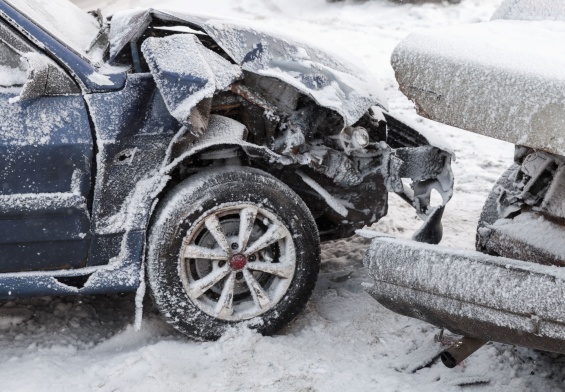A bad car accident in New Jersey can flip-turn your life upside down, leaving you with injuries, bills, and the insurance company breathing down your neck. How can you deal with this? By understanding when NJ law lets you sidestep no-fault insurance and file a lawsuit to actually recover.
NJ follows a no-fault system for injuries, which makes the rules feel backwards at first. Your own Personal Injury Protection coverage pays medical bills first, even when the other driver caused the wreck. A car accident lawyer in NJ can help you avoid common pitfalls by confirming your policy option and whether your injuries qualify for a lawsuit.
Quick Answer: Can You Sue in NJ for a Car Accident?
Yes, you can sue after a car accident in New Jersey. NJ no-fault rules mean your PIP coverage pays medical bills first, regardless of fault. You can sue the at-fault driver for pain and suffering if you have an unlimited right to sue policy, or if you have a limited right to sue policy and suffer a qualifying serious injury under the verbal threshold rules.
NJ No-Fault Insurance Explained for Crash Victims
New Jersey is a “choice no-fault” state. That means every policy includes PIP, and PIP pays for medical care after a crash before any lawsuit comes into play. According to the New Jersey Department of Banking and Insurance Basic Auto Insurance Policy page, this applies even when you did nothing wrong.
No-fault laws exist to speed up treatment and cut smaller cases that only involve routine medical bills. It doesn’t block all lawsuits, nor does it protect careless drivers from responsibility. All it does is move the starting point for injury benefits.
According to the DOBI Basic Policy guide, certain severe injuries may qualify for higher PIP limits, including some brain or spinal injuries. Even then, covering long-term financial losses as well as pain and suffering might need a lawsuit.
The 2 Things That Decide Whether You Can File a NJ Car Accident Lawsuit
Most NJ crash victims can get clarity by answering two questions.
- What lawsuit option is on your insurance policy.
- If your policy is limited, do your injuries qualify under the verbal threshold.
To check your policy, start with your declarations page. Look for wording like “Limitation on Lawsuit” or “No Limitation on Lawsuit.” If it is unclear, have an car accident lawyer in NJ or your insurer look it over.
An NJ car accident lawyer will compare your policy option to your medical records. That is the fastest way to tell whether a lawsuit is available and how to maximize your recovery. If you want a clearer sense of what proof matters most, this guide explains what evidence an NJ car accident attorney needs to win your case.
Limited vs. Unlimited Right to Sue in NJ Car Accidents
When NJ drivers buy insurance, they choose between two lawsuit options. You’ve probably forgotten, as it’s one of those things that’s only relevant under certain circumstances. According to N.J.S.A. 39:6A-8, your selection controls whether pain and suffering claims are limited.
Limited Right to Sue (Verbal Threshold): What the Restriction Means After a Crash
Limited right to sue is also called the verbal threshold. Under this option, you generally cannot sue for noneconomic damages, meaning pain and suffering, unless your injury fits a legal category. This is the more common option because it lowers premiums.
The Basic Policy includes limited right to sue automatically. The DOBI Basic Policy guide explains that this tradeoff is part of why basic coverage costs less. You can still sue for certain losses, but pain and suffering requires a qualifying injury.
Unlimited Right to Sue: How to Sue for Pain and Suffering After an NJ Car Accident
Unlimited right to sue lets you pursue pain and suffering without meeting the verbal threshold categories. You still must prove the other driver’s negligence and show that negligence caused your injuries. The difference is you do not have to prove a threshold injury to claim noneconomic damages.
If you are unsure which option you chose, have a car accident lawyer in NJ review your policy. Knowing this early helps you avoid settling too soon for less than your case is worth.
How to Determine If Your Injuries Qualify for a NJ Car Accident Lawsuit Under Verbal Threshold
If you have limited right to sue, you can still file for pain and suffering when your injuries fit one of the serious categories in NJ law. According to N.J.S.A. 39:6A-8 and New Jersey Courts Model Civil Jury Charge 5.33, the qualifying injuries include:
- Death
- Dismemberment
- Significant disfigurement
- Significant scarring
- Displaced fracture
- Loss of a fetus
- Permanent injury, other than scarring or disfigurement
“Permanent injury” is pretty vague, thus it’s the category most people ask about. Jury Charge 5.33 explains that an injury is permanent when a body part has not healed to normal function and will not heal to normal function, even with further treatment. You need verifiable medical evidence to corroborate that permanence, like imaging or clinical findings. Just complaining about pain isn’t enough. For more on what courts scrutinize most closely, see the hardest injuries to prove after a New Jersey accident.
You do not have to prove that the injury destroyed your lifestyle to meet the threshold. The jury charge cites DiProspero v. Penn, which confirms that objective proof of a permanent injury can meet the verbal threshold. A car accident lawyer in NJ will focus on collecting the proof that courts actually need.
When a Lawsuit Is an Option After a NJ Car Crash
You can sue for injuries in NJ when another driver’s negligence causes harm beyond what no-fault benefits cover. In real cases, a New Jersey car accident lawsuit is usually an option when one of these conditions is true. This applies across many common types of car accidents in New Jersey.
- You chose unlimited right to sue.
- You chose limited right to sue and have a qualifying serious injury.
- Your PIP benefits are not enough to cover your losses and you can prove the other party’s negligence.
Even under no-fault rules, you can hold the at-fault driver accountable for the damage they caused. Your policy option and injury category decide whether pain and suffering can be part of that claim.
A car accident lawyer in NJ can cartograph the best route to recovery after a serious crash. That planning helps prevent missed opportunities and lowball settlements.
What Compensation You Can Recover in a New Jersey Car Accident Case
Accident lawsuits aren’t limited to solely pain and suffering. They can also be about financial losses that insurance does not fully pay. Understanding these categories helps you maximize your recovery.
Economic Damages: Medical Bills, Lost Wages, and Future Costs
Economic damages are losses with a clear dollar value. These may include:
- Medical bills not fully paid by PIP
- Future care costs for long-term injuries
- Lost wages beyond PIP limits
- Reduced earning capacity if you cannot return to work
- Out-of-pocket expenses tied to recovery
According to the DOBI Basic Policy guide, PIP limits depend on what you purchased. When you reach those limits, a claim against the negligent driver may be the only way to recover the rest.
Pain and Suffering in NJ: When It’s Allowed and How to Protect Your Claim
Noneconomic damages include the human costs of an injury. These may cover:
- Physical pain
- Emotional distress
- Loss of enjoyment of daily life
- Long-term limitations from permanent injuries
These damages are available if you have unlimited right to sue. They are also available with limited right to sue when your injury meets the qualifying injuries for verbal threshold in NJ. A car accident lawyer in NJ can document your condition in a way that avoids common pitfalls insurers use to deny or shrink pain and suffering claims.
NJ Car Accident Lawsuit Deadline You Cannot Miss
Even if your injuries qualify, you can lose the right to sue if you miss the filing deadline. NJ has strict statutes of limitations.
According to N.J.S.A. 2A:14-2, most personal injury lawsuits must be filed within two years of the crash date. That clock usually starts on the day of the accident. A car accident lawyer in NJ will track this deadline and file before time runs out.
Property damage claims have a longer window. According to N.J.S.A. 2A:14-1, most property damage lawsuits have a six-year deadline. Waiting still has risks, because evidence and records have a penchant for vanishing as time passes.
What to Do After a Crash to Protect Your NJ Car Accident Claim
If you were not at fault, these steps can protect your claim and your health. Reading about common mistakes after a car accident that hurt your claim can also help you avoid missteps early.
- Get medical care right away and follow your treatment plan.
- Save imaging, prescriptions, and visit notes.
- Find your declarations page and confirm limited or unlimited right to sue.
- Photograph injuries and vehicle damage early.
- Keep a simple weekly record of symptoms and limitations.
- Be careful with recorded statements until your rights are clear.
- Talk with a car accident lawyer NJ victims rely on before accepting a settlement.
These moves help preserve proof of permanency, scarring, fractures, and other threshold issues. They also protect evidence for property and wage-loss claims.
Key Takeaways for NJ Accident Victims
- NJ no-fault rules need your PIP to pay medical bills first, even when you were not at fault.
- You may sue for pain and suffering if you have unlimited right to sue, or if your limited policy injuries meet NJ serious injury categories.
- Serious injuries include displaced fractures, significant scarring or disfigurement, and permanent injuries proven by objective medical evidence.
- Property damage claims are not restricted by the verbal threshold.
- The NJ car accident lawsuit deadline for injuries is usually two years, so early legal review matters.
Talk to a Car Accident Lawyer in NJ if You’re Unsure
New Jersey no-fault rules often make accident victims think they cannot sue. In reality, lawsuits are often still an option. Your right to sue depends on your policy choice and whether your injuries qualify as serious under NJ law.
If you are unsure where you fit, talk with a car accident lawyer in NJ to review your policy and medical proof. Getting clarity early can protect your claim and help you pursue the full recovery you deserve.
Resources
law.justia.com – 2024 New Jersey Revised Statutes Title 2A – Administration of Civil and Criminal Justice Section 2A:14-1 – 6 years
NJCourts.gov – Model Civil Jury Charge 5.33
NJ Department of Banking & Insurance – Get Legal with New Jersey’s Basic Auto Insurance Policy




